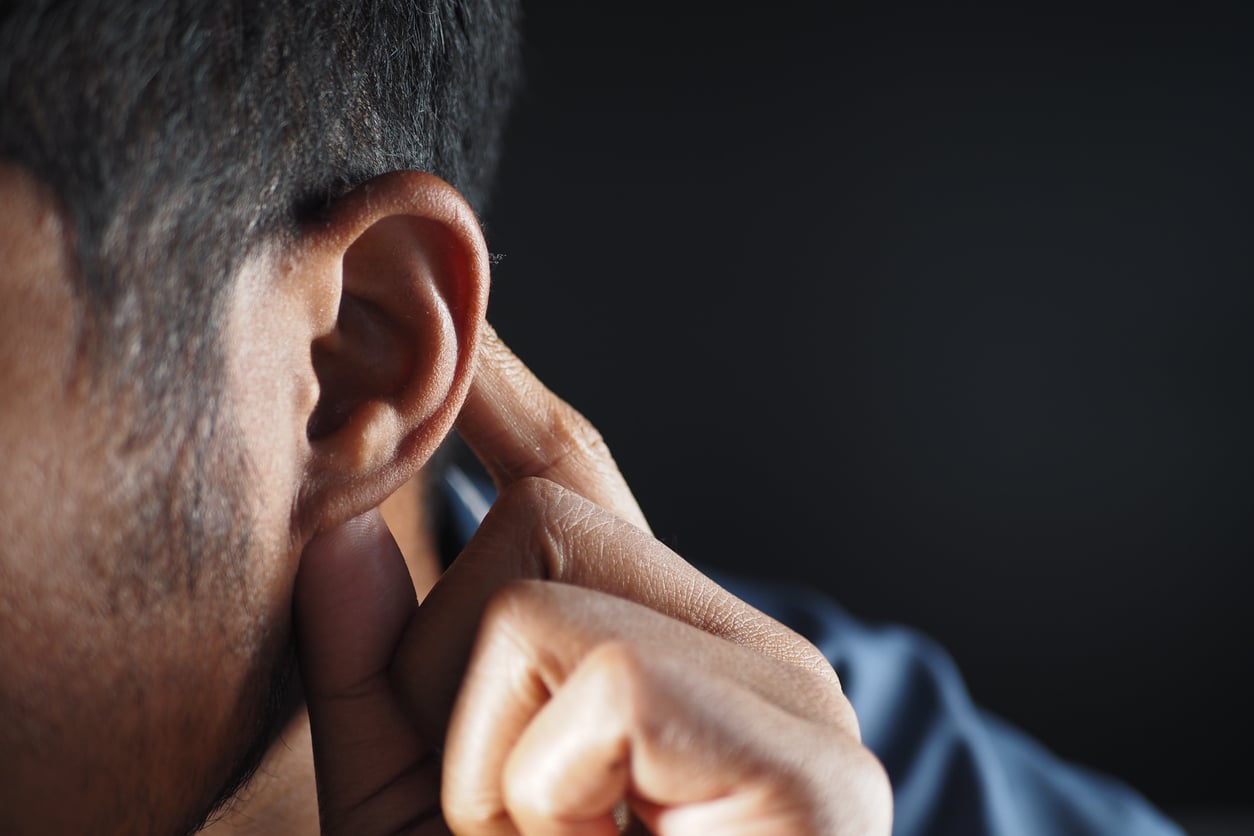If you’ve noticed a small lump behind your ear, about the shape and size of a bean and tender to the touch, that is a swollen lymph node. Lymph nodes are a critical part of your immune system. Usually, you cannot feel them with your fingers because they’re so small, but sometimes they swell, and that’s when you can touch and see them. This swelling may be alarming at first, but in most cases, it isn’t a serious medical concern, and the swelling will go away on its own.

What Are Lymph Nodes?
Lymph nodes are located in small clusters all throughout your body: in your armpits, in your groin, under your chin and behind your ears. Their function in the immune system is to filter out debris and foreign invaders from your cells. Think of them like the filter in a fish tank.
A watery fluid called lymphatic fluid travels through the cells in your body, flushing out damaged cell material and foreign substances and carrying it to the lymph nodes for filtration. This filtration is done by lymphocytes, which are powerful white blood cells that are located in the lymph nodes and destroy foreign substances like viruses and bacteria. Once the foreign substance has been destroyed, the lymphatic fluid carries the waste to the kidneys and liver for filtration and removal from the body.
Why Are My Lymph Nodes Swelling?
When a pathogen enters the lymph node, the node creates more lymphocytes to deal with the problem. This heightened activity in the node causes it to swell. This is its natural response to a threat. It often indicates that the body is fighting off an infection in the area near that node. Therefore, if the lymph node behind your ear is swollen, it’s probably fighting off an infection in the ear, eye or throat.
Can A Swollen Lymph Node Affect My Ear/Hearing?
In some cases, the swollen lymph node may push on a nerve or blood vessel that’s critical to the structure of the inner ear, causing a feeling of fullness in the ear, tinnitus or temporary hearing loss.
What is more likely is that your hearing could be affected by the infection that the node is fighting off. For example, ear infections can sometimes cause mild, temporary hearing loss, and sinusitis can cause blockage to the eustachian tubes (which connect your ear to your nose and throat), and that can affect your hearing.
When Should I Consult a Doctor?
If you have a swollen lymph node but no other symptoms, no medical intervention should be necessary; the swelling will go away on its own when the body defeats the threat.
However, if there are other symptoms that indicate that you have an infection and it’s getting worse, or the infection has lasted a few days, it’s time to go see a healthcare provider. If you do notice a change in your hearing or tinnitus in conjunction with a swollen lymph node, you should consult a healthcare provider as well as an audiologist for a hearing test. Call Albany ENT & Allergy Services with questions or for more information.